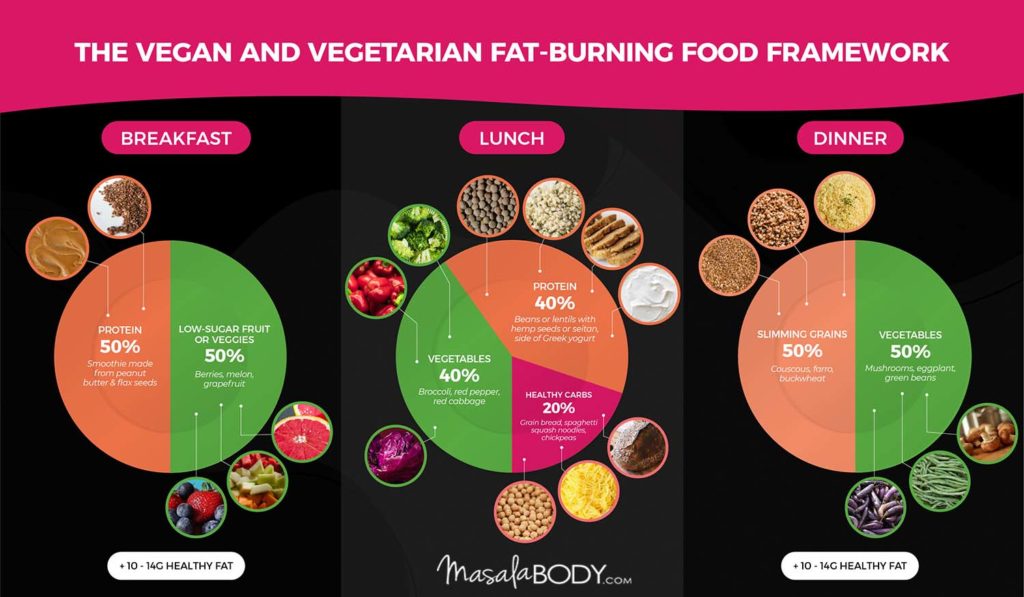
Want to lose weight on a vegan diet? You’re in the right place.
I’ve helped hundreds of women with all kinds of dietary preferences lose 20-40+ pounds (without exercise) and keep it off through my personalized weight loss coaching programs. It’s my lifestyle choice as well – I’ve been vegetarian since I was 12 and recently became fully vegan (read more about my 40lb weight loss here).
Today, I’m sharing the same professional advice I give to my clients to help you understand how to lose weight while following a vegan diet. Learn:
- How to get vegan protein, Vitamin b12, and calcium naturally
- How to eat metabolism-boosting, vegan food that keeps you full and satisfied while you shed pounds
- Seven steps to weight loss while eating a vegan diet
- What to eat for vegan weight loss, including metabolism-boosting spices, healthy carbs, and slimming grains
Plus, scroll down to get a 7-day vegan meal plan for weight loss with recipes and a shopping list so you can start your vegan weight loss journey at your own pace and experience the results for yourself!
But first, if you want to see what weight loss for vegans can look like, take a look at this inspirational success story:
Lauren, a vegan mom of two, lost six pounds and ten inches off her body in just 21 days.
What is veganism?
Veganism is a diet that is based on plants. Vegans completely abstain from using any animal products, such as meat, eggs, and dairy products.
The term “vegan” was actually coined back in 1944, but in recent years the diet has skyrocketed in popularity. Natalie Portman, Thandie Newton, Alicia Silverstone, and Daryl Hannah are just a handful of the celebrities that follow a vegan lifestyle.
People choose to become vegan for different reasons:
Some want to live a healthier life – A vegan diet has been linked with better heart health, reduced risk of cancer, and numerous other positive health outcomes.
Some want to protect the environment – Following a vegan diet reduces environmental harm & helps slow climate change.
Some want to stop any exploitation of animals – Many vegans are passionate about eliminating cruelty and suffering to other living things and following a diet that aligns with their personal values.
What is the difference between a vegan and a vegetarian?
The difference between a vegan and a vegetarian is that a vegetarian includes some animal products in their diets, but not meat. Vegetarians typically eat dairy products, eggs, and honey (depending on the type of vegetarian diet that they follow). Vegans, on the other hand, exclude all of them.
What is the difference between a vegan and someone who follows a plant-based diet?
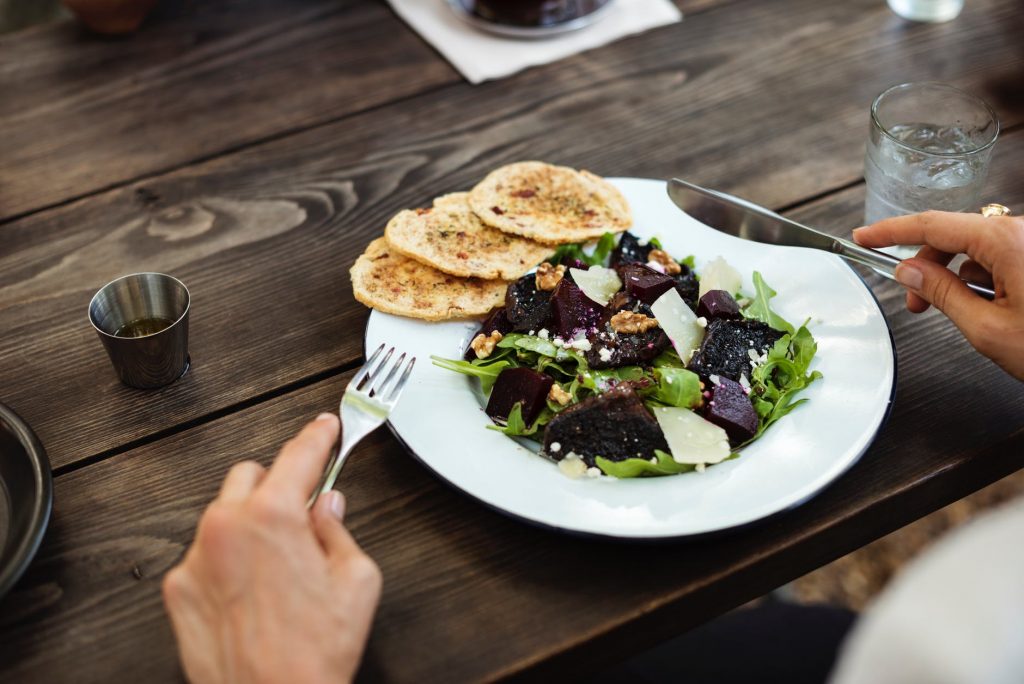
The difference between a vegan and someone who follows a plant-based diet is that, while vegans strictly exclude ALL animal products, someone who is plant-based will typically mostly eat a vegan diet, but may also occasionally eat animal products.
So, now you know what a vegan diet is. But what are the pros and cons of veganism?
What are the pros of being vegan?
There are many pros to being vegan:
- Vegan diets are richer in foods like fruits, vegetables, and legumes. Thanks to this, you include more of their beneficial nutrients in your diet.
- Vegan diets tend to provide more dietary fiber, vitamin E, vitamin K, folate, iron, and fatty acids.
- Vegans have been shown to have lower blood sugar levels. They can possibly also be at a lower risk of developing type 2 diabetes.
- Veganism could be linked to a lower risk of heart problems. Eating fruits, legumes, vegetables, and fibers are all linked to a lower risk of heart disease.
What are the cons of being vegan?
There are some cons to being a vegan:
A poorly planned vegan diet might not provide enough vitamin B12, zinc, calcium, selenium, vitamin D, and iodine. That’s because animal products have nutrients that a plant-based diet lacks.
However, by properly planning ahead, vegans can make up for these deficiencies. Supplements can help vegans get enough nutrients like B12.
And deficiencies like these aren’t limited to a vegan diet. There are deficiencies in carnivorous diets as well. So no matter what diet someone is on, it’s always important to be mindful of the food we eat.
Is veganism a good way to lose weight?
Do vegans lose weight faster? Observational studies indicate that vegans tend to be thinner and have a lower body mass index (BMI) than people on other diets.
Veganism is linked to lower emotional eating and lower uncontrolled eating compared to an omnivorous diet.
A vegan diet is also healthier than other diets it’s compared to. A small study comparing a typical Western diet with a vegan diet found that those on the vegan diet lost slightly more weight than those on a Western diet.
Does veganism cause weight loss?
Conversely, being vegan doesn’t automatically result in weight loss.
If you’re not getting enough calories by eating nutritious meals on a vegan diet, your metabolism can slow down and make it more difficult to lose weight
Plus, it’s easy to assume all vegan products are healthy just because they are labeled vegan – they’re not. Many vegan products are processed, and people who follow a vegan diet need to be discriminating to know what vegan products will help them lose weight vs. gain weight. For example, check out these unhealthy vegan products and what to eat instead.
How much weight can you lose on a vegan diet in a month?
Weight loss is highly individual. That’s why it’s impossible to say how much someone will lose in a specific time frame.
For example, in Slim Down Transformation, which is my own accountability weight loss program, women tend to lose 12-19 pounds in the first 2-3 months. And then they go on to lose anywhere between 30-100 pounds.
Ultimately, it’s better to lose weight a bit slower if you want to keep those results.
If the weight loss is unhealthy and too rapid, you risk making it much harder to lose weight in the future. Research links deprivation with a slower metabolic rate.
How do you lose weight as a vegan? The 7-step vegan weight loss plan
Naturally, you can’t just adopt a vegan diet and hope and pray that you’ll lose weight. Instead, you need to be very strategic about how you lose weight. The best vegan diet to lose weight is one that contains a variety of healthy carbs, proteins, fats, fruits and vegetables.
Here are the seven weight-loss strategies I use to coach my vegan clients when they join my 8 Week Vegan Slimdown Jumpstart program:
1. Eat more protein (this is extremely important)
As a vegan, you risk eating less protein than non-vegans.
Protein, again, helps you lose weight. How? There are several reasons. Protein helps prevent muscle loss and metabolic slowdown.
Another reason is that protein has a higher thermic effect compared to carbs or fat (20-30% vs 5-10% and 0-3%). For that reason, protein helps you lose more calories than you eat.
Good sources of protein for vegans include:
- Chickpeas
- Hemp Seeds
- Quinoa
- Nutritional yeast
- Tofu/Seitan
Getting enough protein is one of the biggest barriers my vegan weight loss clients have when trying to lose weight on their own. If you’re feeling like you’re eating the same bland thing over and over again on a vegan diet, my program provides dozens of foods and strategies for this, including metabolism-boosting spices, healthy plant-based proteins, and natural protein boosts that you can add to the vegan foods you love.
2. Exercise (strength train)
If you’re doing cardio to lose weight, think again.
Strength training has been shown to prevent metabolic slowdown and reduce muscle loss. That’s why you should participate in at least two strength-training sessions every week.
No need to even go to the gym. You can exercise at home!
If you’re too busy or unable to fit in a workout, you can still lose weight without exercise. How?
We use the Tested and Perfected Vegan Fat-Burning Food Framework to ADD foods to meals that boost metabolism. We focus on adding foods instead of subtracting them, simplifying choices, and eating delicious foods, resulting in sustainable weight loss.
3. Avoid processed food
There are a lot of vegan substitutes for meat and other non-vegan foods on the market – vegan mayonnaise, vegan cheese, vegan ice cream – but are they really useful for weight loss? Most of the time, the answer is no.
Processed foods like these are high in sugar, starches, and fat. They don’t include nutrients, so even though, say, an apple includes sugar, it’s much healthier than a donut because apples come with plenty of nutrients that “take out” the impact of sugar.
So skip those vegan foods and focus on protein, vegetables, and fruits.
4. Cut out hidden sugars
Want to stop eating sugar?
Elevated sugar consumption levels have been linked to weight gain. Sugar also has a range of other unhealthy side effects, such as heart problems.
That’s not to say that you should cut out sugar entirely. Your body needs sugar, too.
But you should reduce the amount of sugar you eat, if you eat more than 25g of sugar a day (for women) or 36 grams (for men).
Remember that we’re not just talking about clearly sugary foods and drinks like vegan donuts or soft drinks.
There are plenty of foods that we consume every day and that contain hidden sugar. For example, fruit drinks and coffee/tea are some of the biggest sources of hidden sugar. (Coffee and tea if you add sugar to them.)
5. Skip the next diet
When you think of weight loss, you probably think of diets, right?
The thing is that restrictive diets are really bad for you.
Diets lead to weight loss, yes, but people gain back those pounds. According to a study of 19,000 men, the best predictor of weight gain is that people have lost weight on a diet at some point during the previous years.
6. Make it easy for yourself
You know what happens too easily?
Someone will get excited to lose weight, take all the steps they need to, only to quickly hit one challenge after the other as they can’t keep up with weight loss and living their life.
If you have a busy job and a family, it’s really hard to keep going every day if you try to do things that you normally wouldn’t do in your life.
Maybe you’re giving yourself a hard “no” on any sweets whatsoever. And they just feel so tempting at 2pm in the afternoon when you’re starting to hit that slump…
Or you have to cook for yourself AND your family. Who has time for that?
Successful weight loss comes down to adopting habits that work with your lifestyle.
Don’t restrict yourself 100%, but enjoy your life by eating that vegan chocolate cake. And instead of a sugary sweet, have a delicious smoothie to kick back from your afternoon slump.
It all comes down to balance.
7. Get support!
Finally, you know the saying, “if you want to go fast, go alone. If you want to go far, go together”?
It’s highly applicable to personal weight loss.
You see, as weight loss statistics show, support is essential for successful, long-term weight loss.
A randomized trial shows that programs that include elements like group support, assignments, and discussions are more effective than a self-help approach.
How to boost weight loss when on a vegan diet
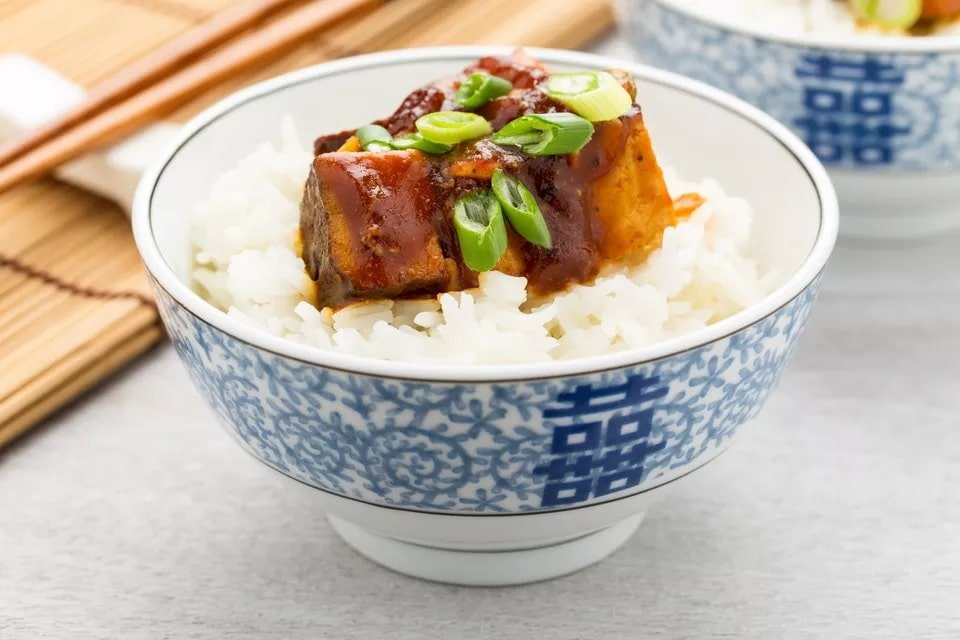
Figuring out how to eat to burn fat while on a vegan diet can be challenging. In my 8 Week Vegan Slimdown Jumpstart program, I teach my vegan clients how to combine metabolism-boosting, fat-burning vegan food into delicious meals and snacks that make weight loss feel simple using the Vegan Fat Burning Framework.
You can use the Vegan Fat Burning Framework below as a starter guide to put together breakfasts, lunches, and dinners that cater to your preferences and lifestyle (and also help you shed pounds).
7-day vegan weight loss meal plan

What does a healthy vegan weight loss plan look like? The above infographic lays out the MasalaBody Fat Burning Food Framework for vegans. It tells you how to fill your plate for breakfast, lunch, and dinner while following a vegan diet and trying to lose weight.
I have also laid out a 7-day meal plan to help you get started. I’m linking to some of my favorite recipes to make the preparation even easier for you.
The best part is that these vegan weight loss recipes are family-friendly. You don’t need to cook separate meals for the rest of your family (unless they have other diets).
Pro-tip #1: A real-life hack is to make a bit more dinner the night before and use that as your lunch the next day. Or why not meal prep and batch dinners so that you have lunches and dinners ready to go for several days?
Pro-tip #2: I know you’re busy and cooking is a really time-consuming activity. You’d love nothing more than to relax with your family at the end of a busy workday instead of spending hours in the kitchen. My go-to is a crockpot. It’s the best feeling to come home to a fully cooked meal.
Here’s your grocery list for this meal plan:
Dry/canned food and nuts
- Old-fashioned rolled oats
- Oat flour
- Coconut palm sugar
- Baking powder
- Cocoa powder
- Mixed nuts
- Walnuts
- Tomato paste (can)
- Garbanzo beans
- Black beans
- Kidney beans
- Cannellini beans
- Red lentils
- Brown, green or pardina lentils
- Coconut oil
- Coconut milk
- Coconut milk yogurt
- Coconut flakes
- Chickpeas
- Tofu
- Quinoa or brown rice
- Vegetable stock
- Tamarind paste
Fruits, vegetables & berries
- Garlic
- Onion
- Red onion
- Mushrooms
- Small tomatoes
- Spaghetti squash
- Sweet potatoes
- Cherry tomatoes
- Tomatoes
- Pumpkin (pureed)
- Peppers
- Baby carrots
- Asparagus
- Broccoli
- Kale
- Cauliflower florets (frozen)
- Celery
- Avocado
- Baby spinach
- Lemon
- Lime juice
- Bananas
- Clementine mandarin oranges
- Blueberries
- Mango
- Strawberries
- Pepitas
- Frozen pineapple
- Frozen honeydew melon pulps
- Acai pulp
- Dates
Spices & herbs
- Mint leaves
- Fresh parsley
- Dried parsley
- Paprika
- Cilantro
- Cinnamon
- Tai peanut dressing
- Sesame seed
- Chili powder
- Chaat masala
- Jalapeno pepper
- Turmeric powder
- Garam masala
- Ginger
- Nutmeg
- Ground cloves
- Cumin
- Curry powder
- Oregano
- Garlic powder
- Vanilla
- Maple syrup
- Tahini
- Salt
- Pepper
- Olive oil
- Balsamic vinegar
Monday
Breakfast: Easy overnight cinnamon oats
Snack: Masala mixed nuts
Lunch: Curried garbanzo beans
Dinner: Spaghetti squash Thai noodle bowl
Tuesday
Breakfast: Easy overnight cinnamon oats
Snack: Masala mixed nuts
Lunch: Curried garbanzo beans
Dinner: Hands-off turmeric tofu with roasted veggies
Wednesday
Breakfast: Easy overnight cinnamon oats
Snack: Healthy orange creamsicle smoothie
Lunch: Black bean pumpkin chili
Dinner: One-pot Moroccan chickpea bowl
Thursday
Breakfast: Easy overnight cinnamon oats
Snack: Masala mixed nuts
Lunch: Black bean pumpkin chili
Dinner: Leftover Thursday
Friday
Breakfast: Low sugar blueberry smoothie
Snack: Apple and nuts/seeds
Lunch: No-cook 3-bean salad
Dinner: Spicy vegan fajita bowl
Dessert: Clean eating molten lava chocolate cake
Saturday
Breakfast: Homemade acai bowl
Snack: Avocado mojito smoothie
Lunch: Healthy slow-cooker spiced lentil and vegetable soup
Dinner: Mushroom stroganoff (leave out sour cream)
Sunday
Breakfast: Homemade acai bowl
Snack: Creamy ginger green smoothie
Lunch: Red & green salad
Dinner: Vegan masala lentils
How a weight loss coach helps you lose weight on a vegan diet
The secret to weight loss success is more than just knowing what types of foods to eat and when.
One of the main reasons to partner with a weight loss coach is for accountability. In fact, The Mayo Clinic says that accountability is key when it comes to losing weight, and that having someone else that is committed to your weight loss progress is so important that it “can mean the difference between success and failure.”
It’s also much easier to stick to a weight loss plan when you have a supportive community to share struggles and triumphs with.
Interested in seeing everything my online weight loss coaching can offer you? Check out my 8-week Vegan Weight Loss Coaching Program or book a call with me if you like what you’ve heard and are ready to get started.

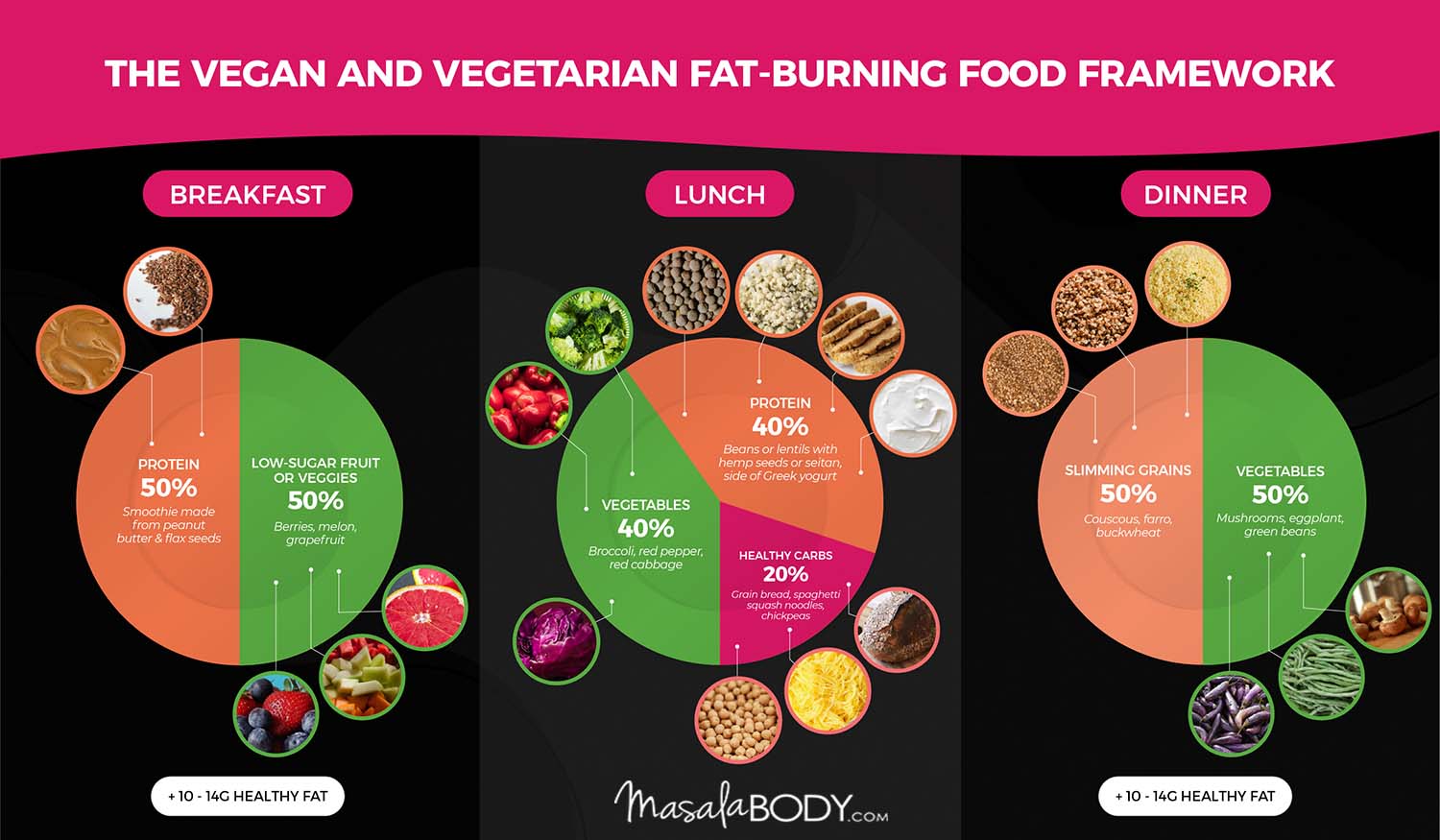
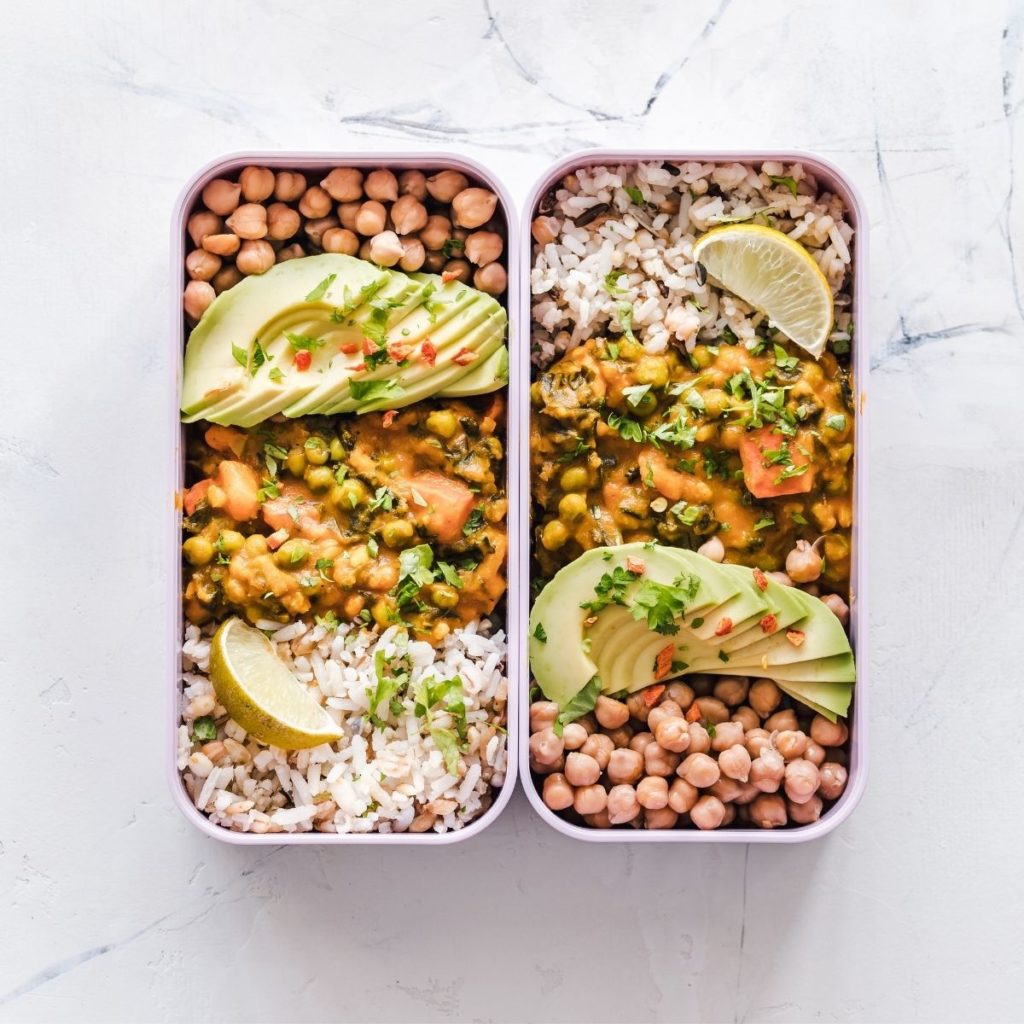

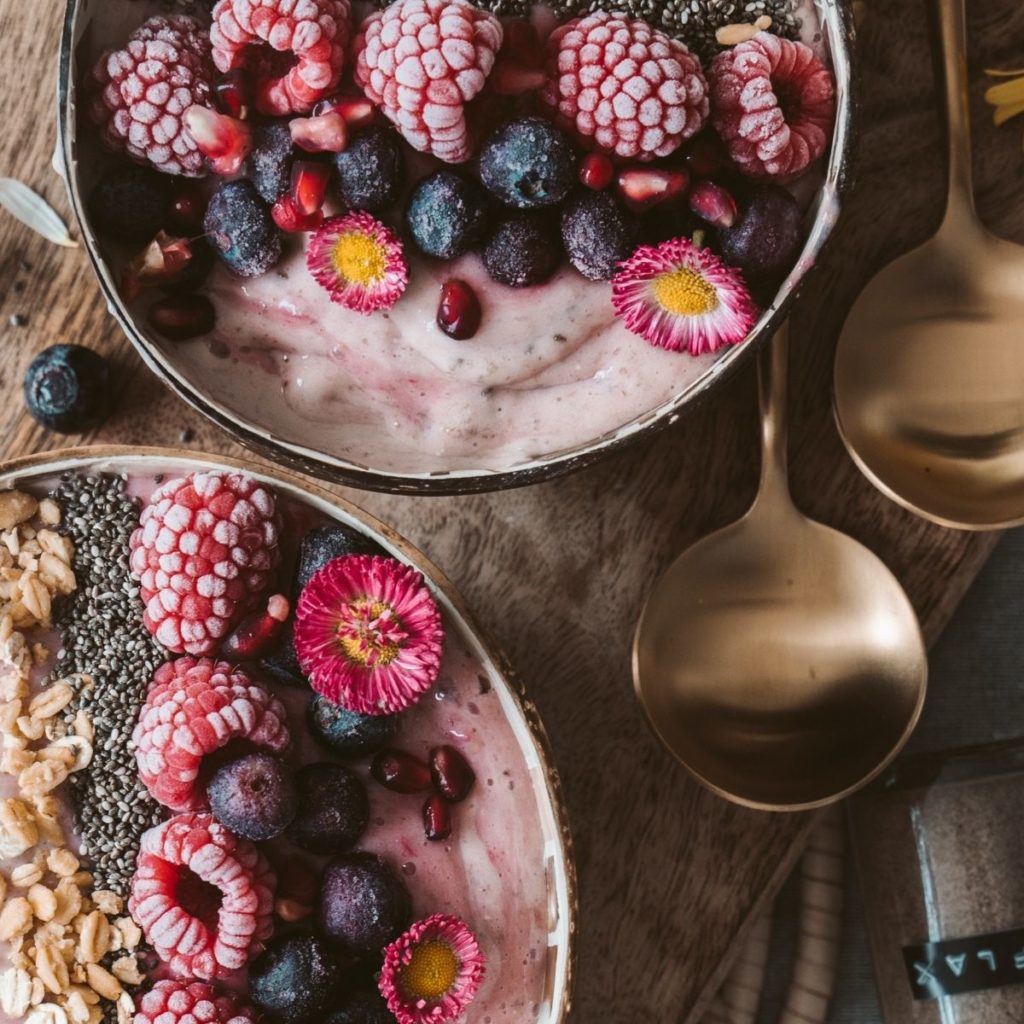
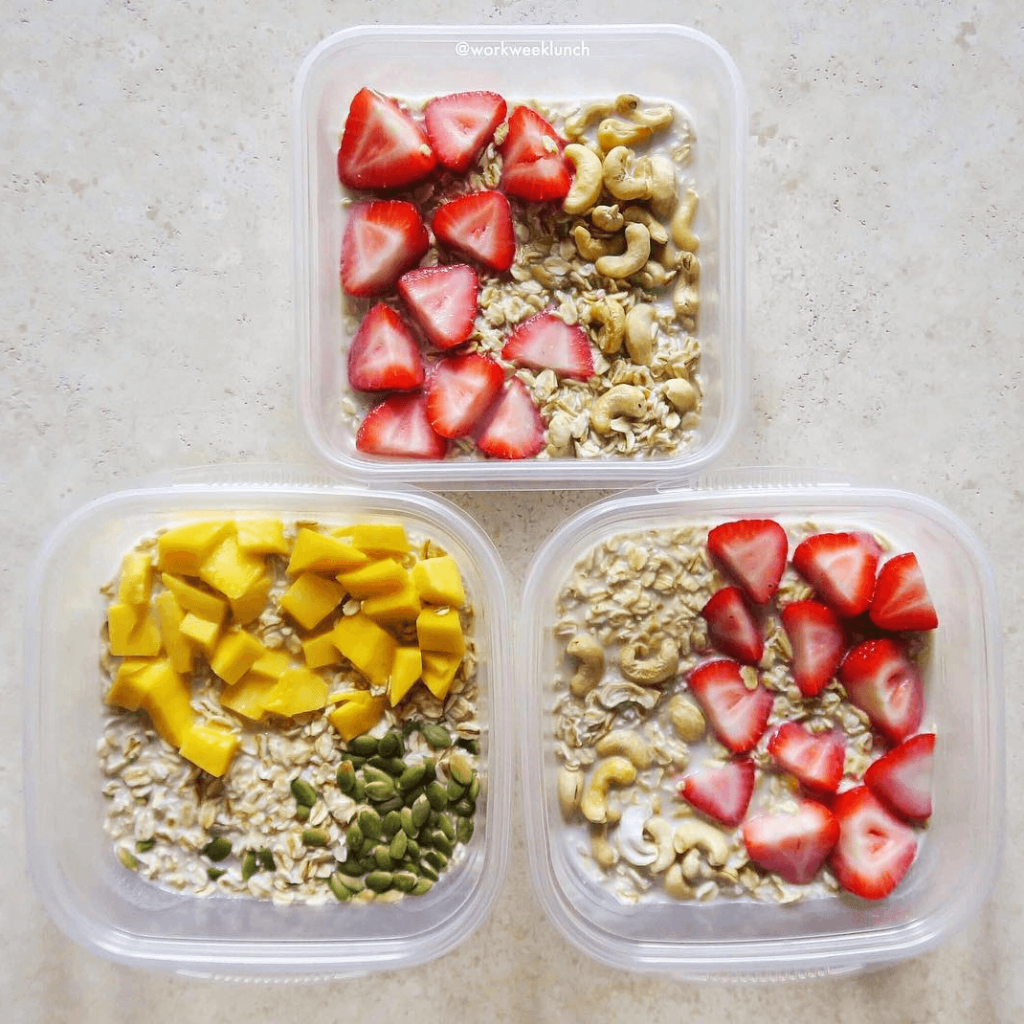
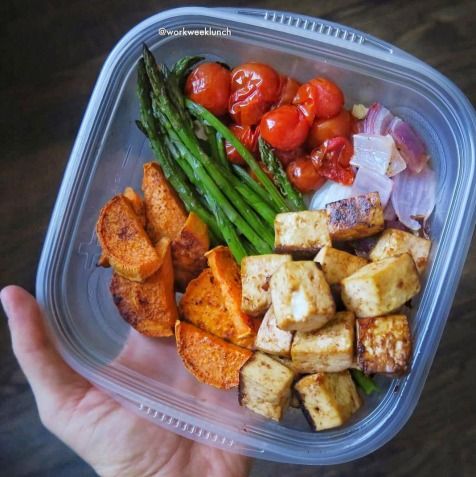
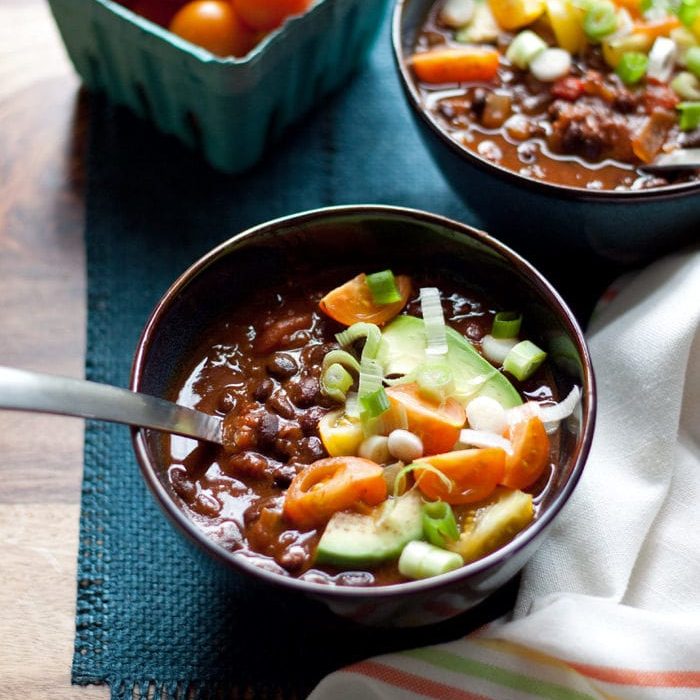
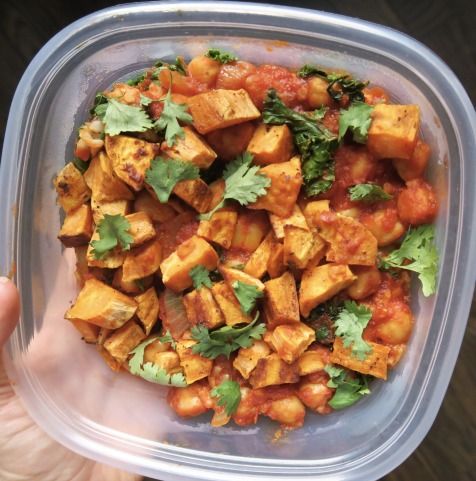

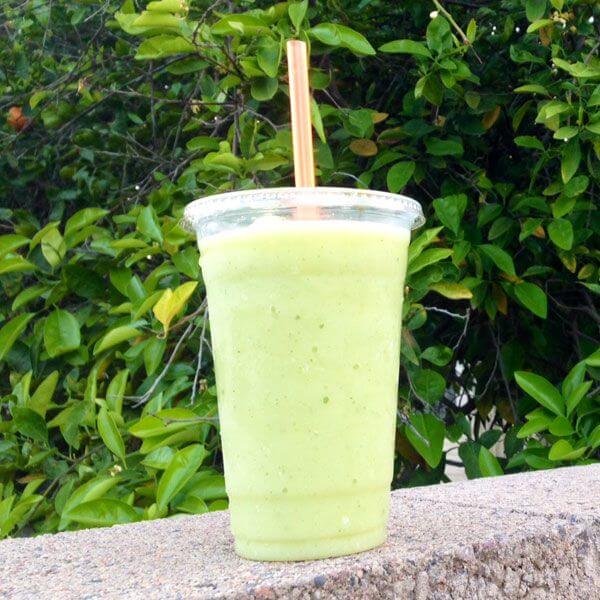
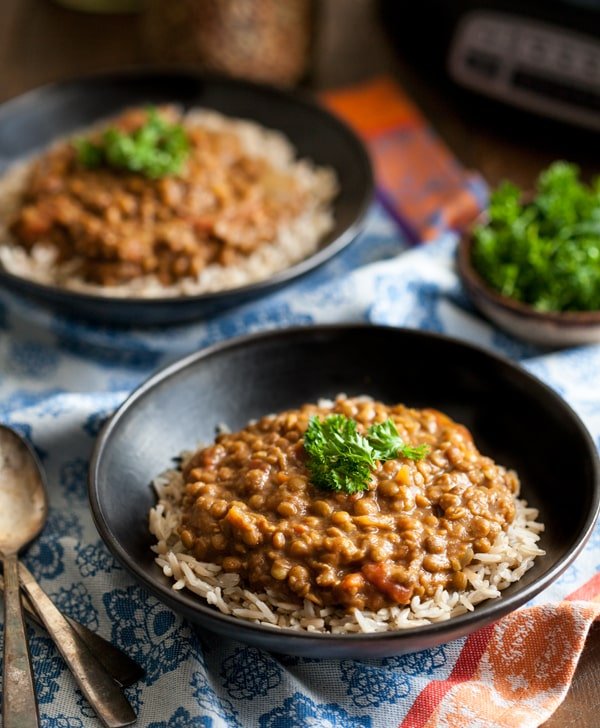

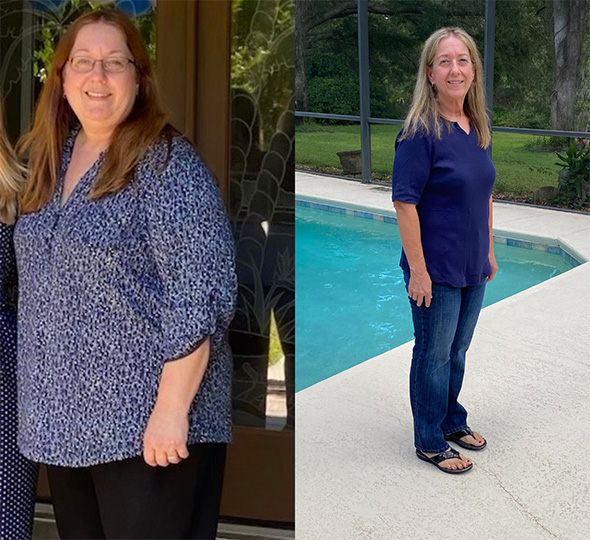
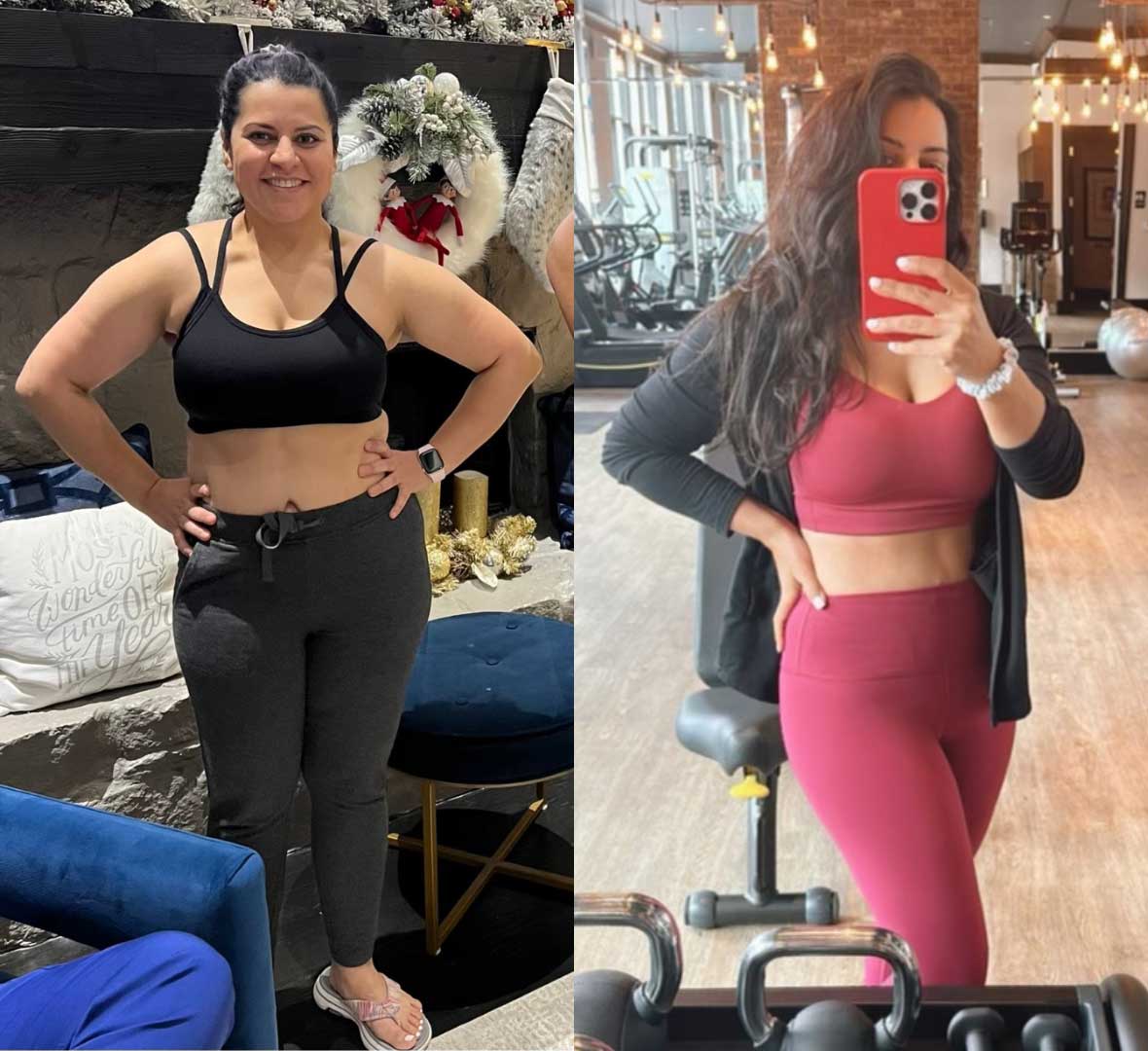
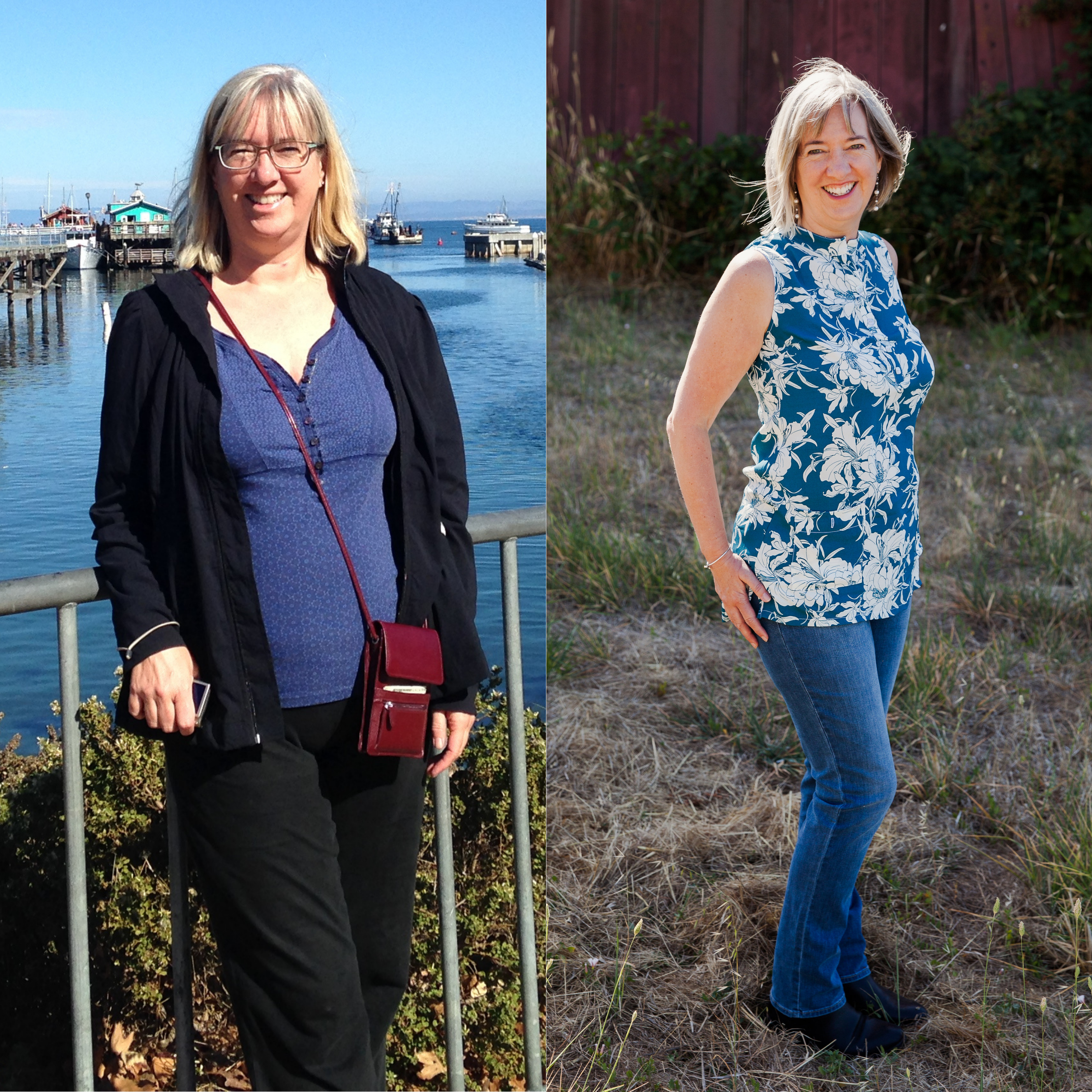
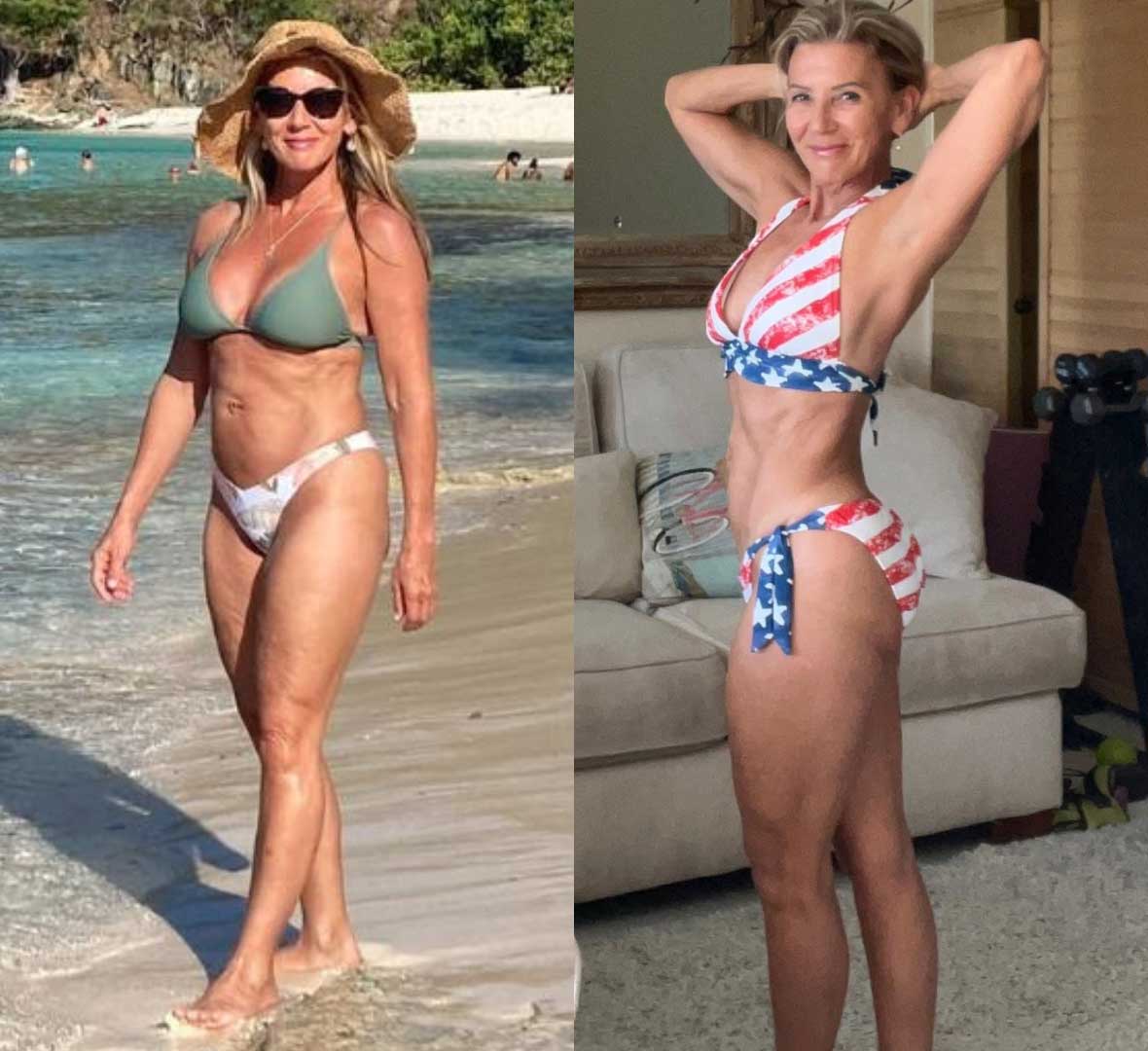

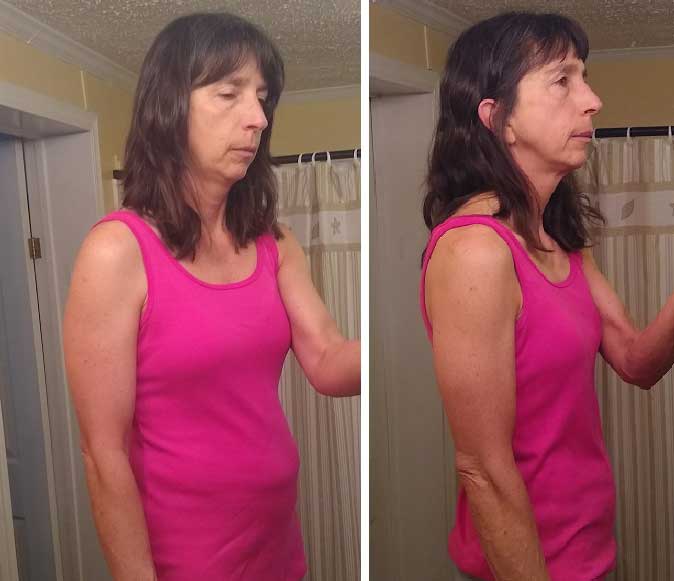
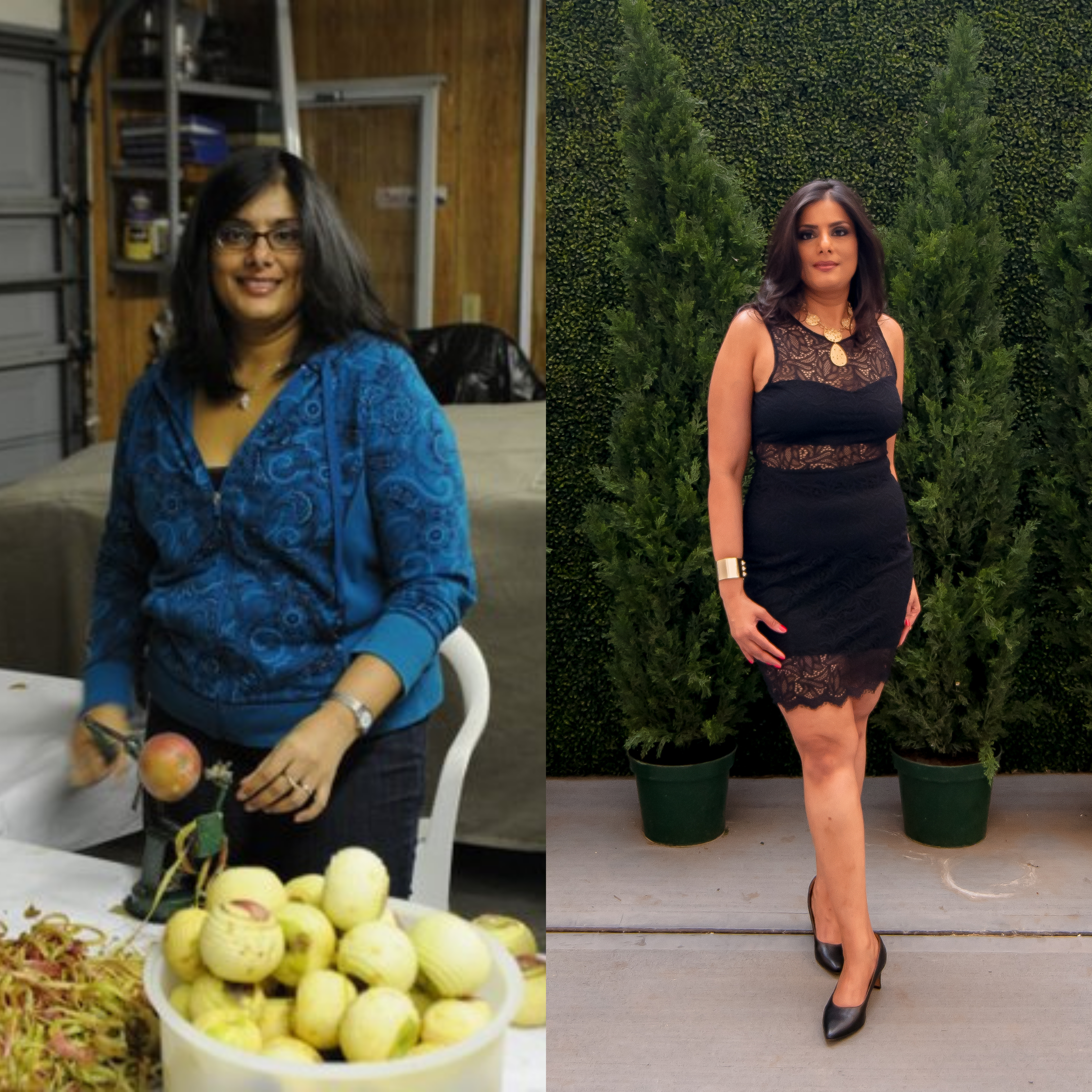
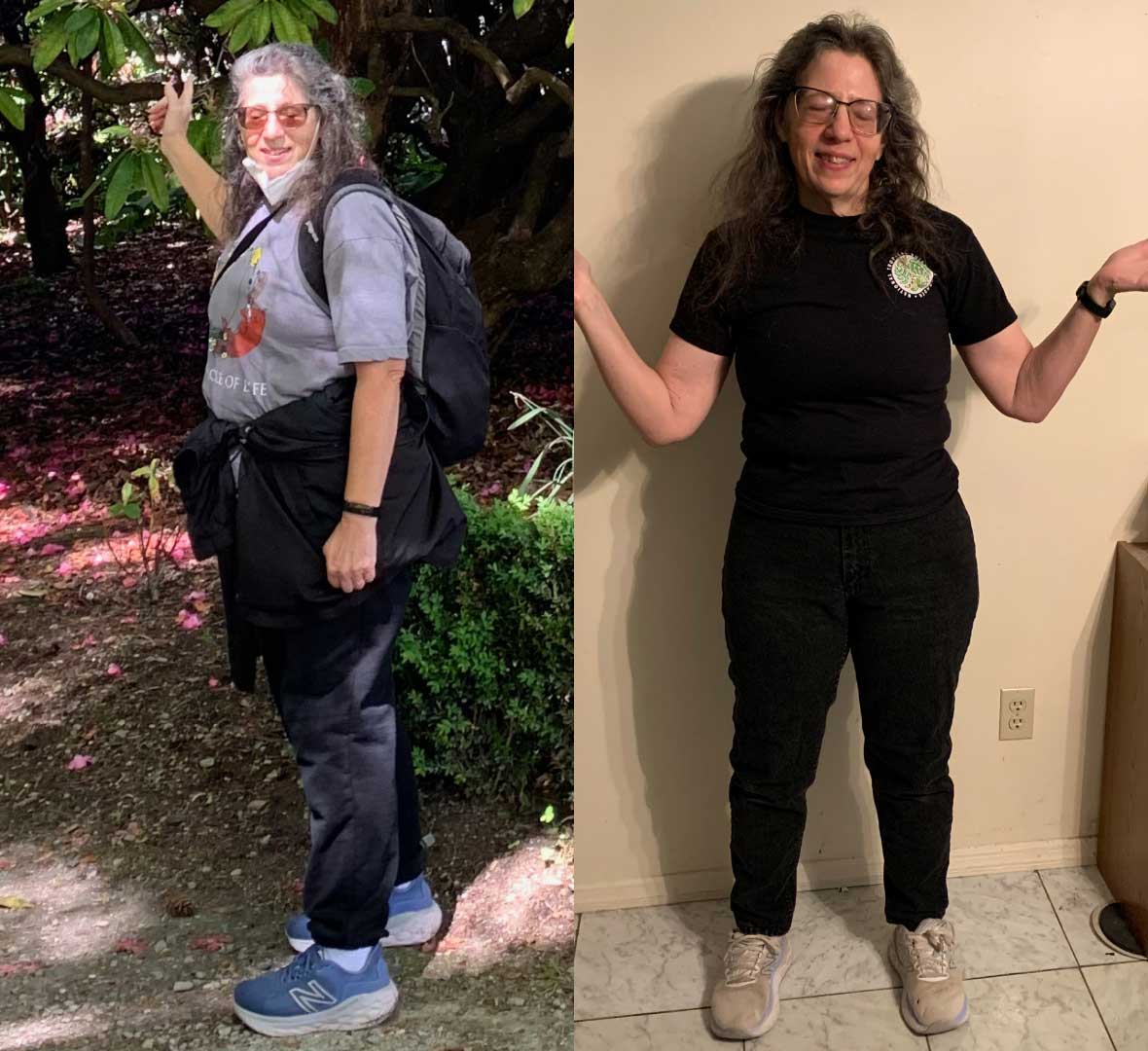

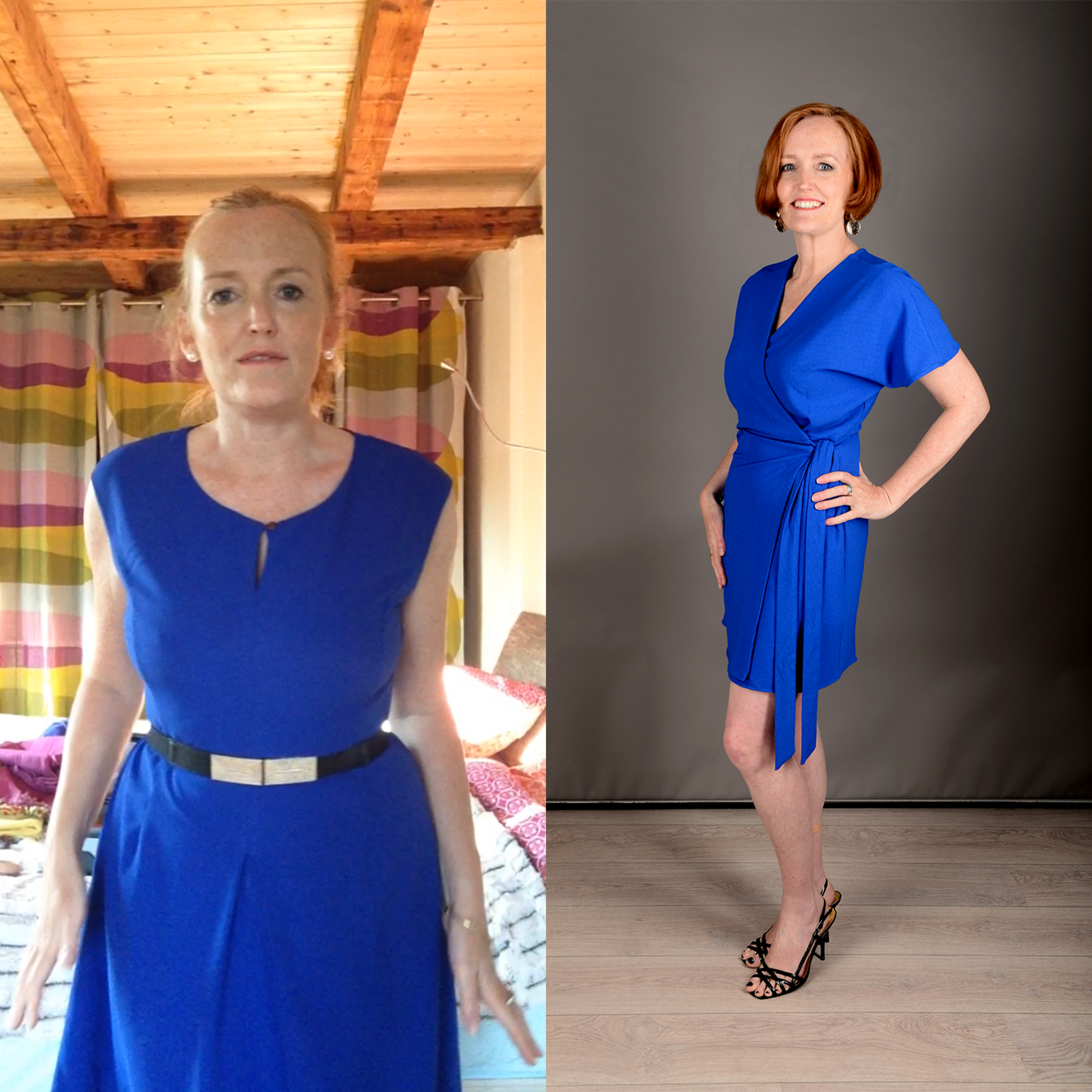
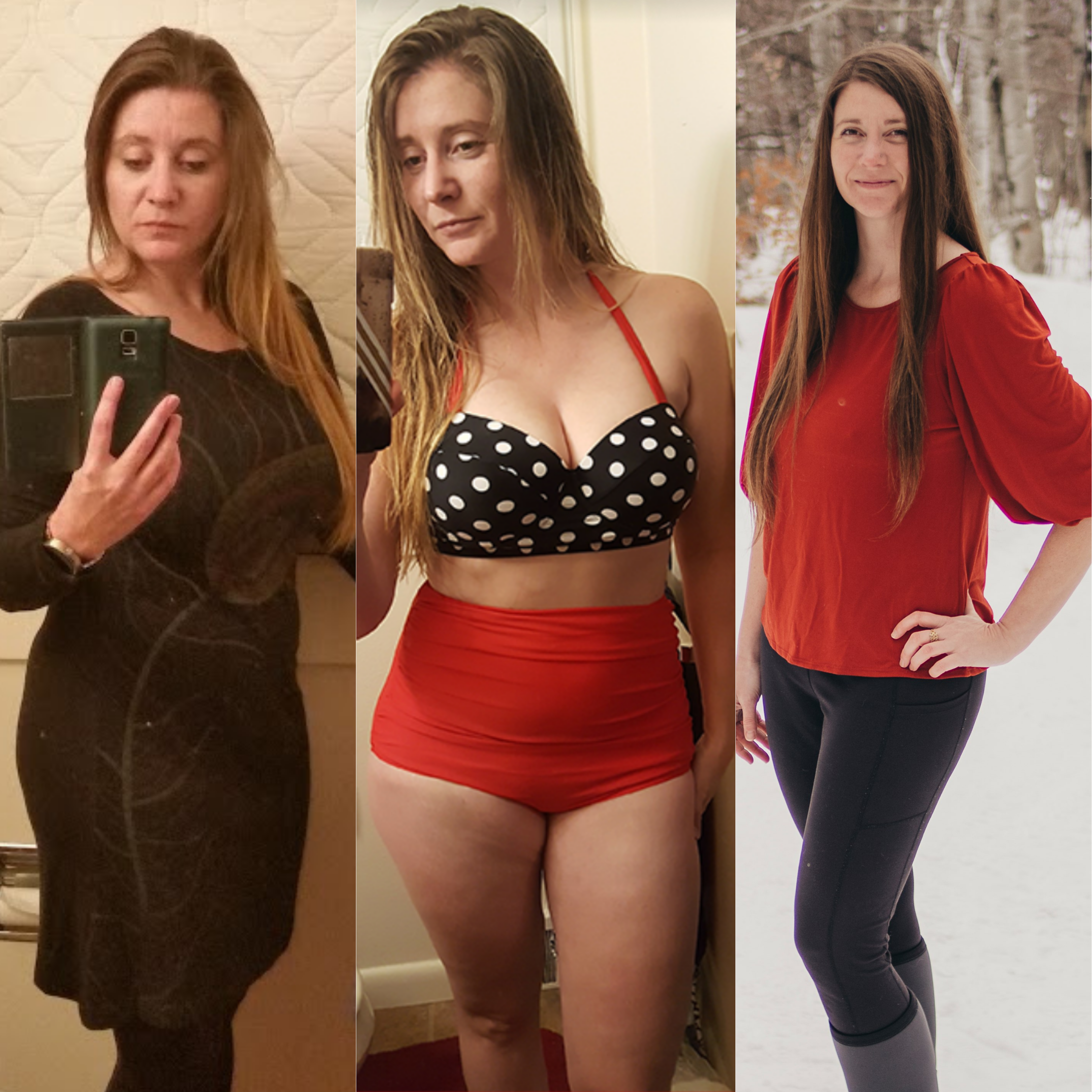
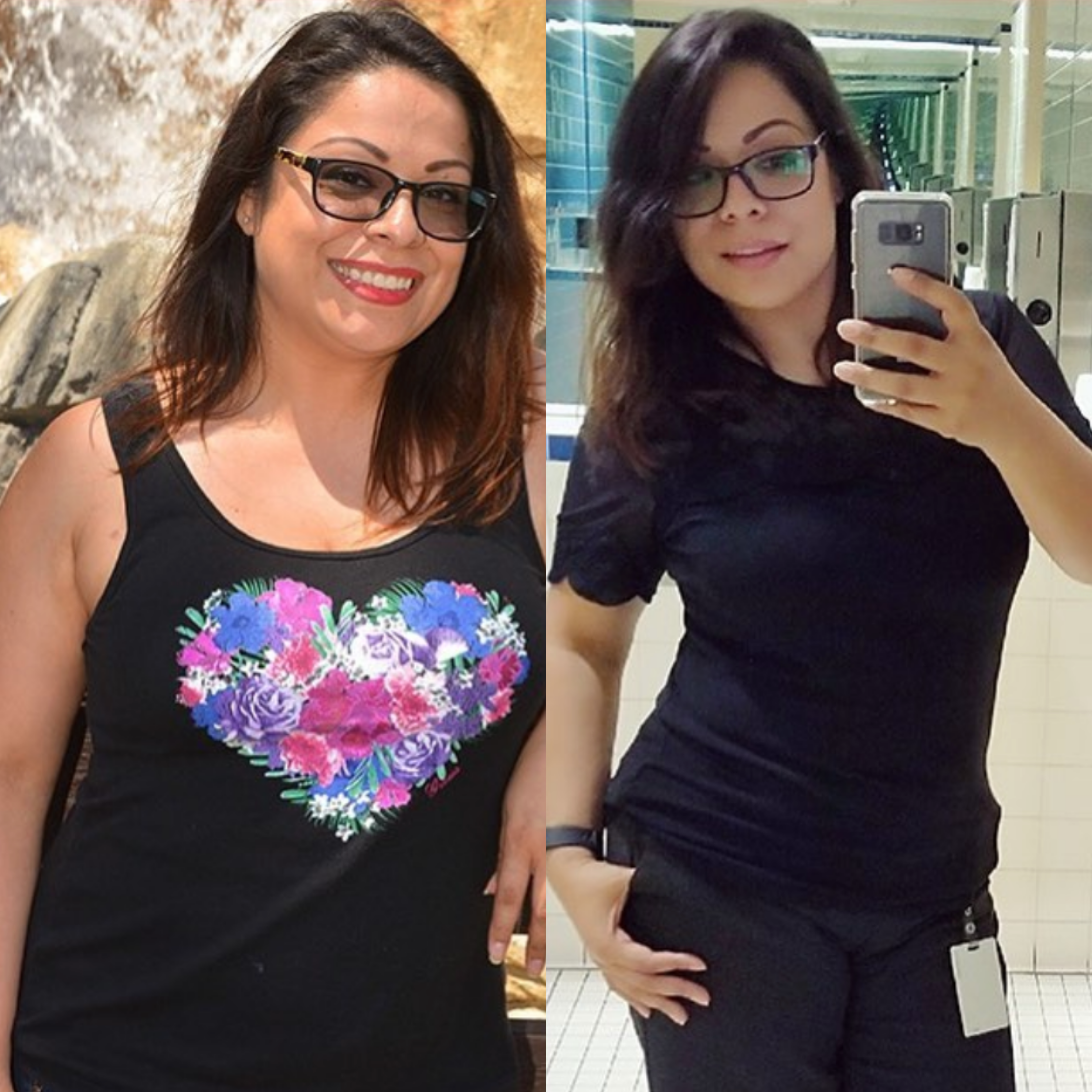

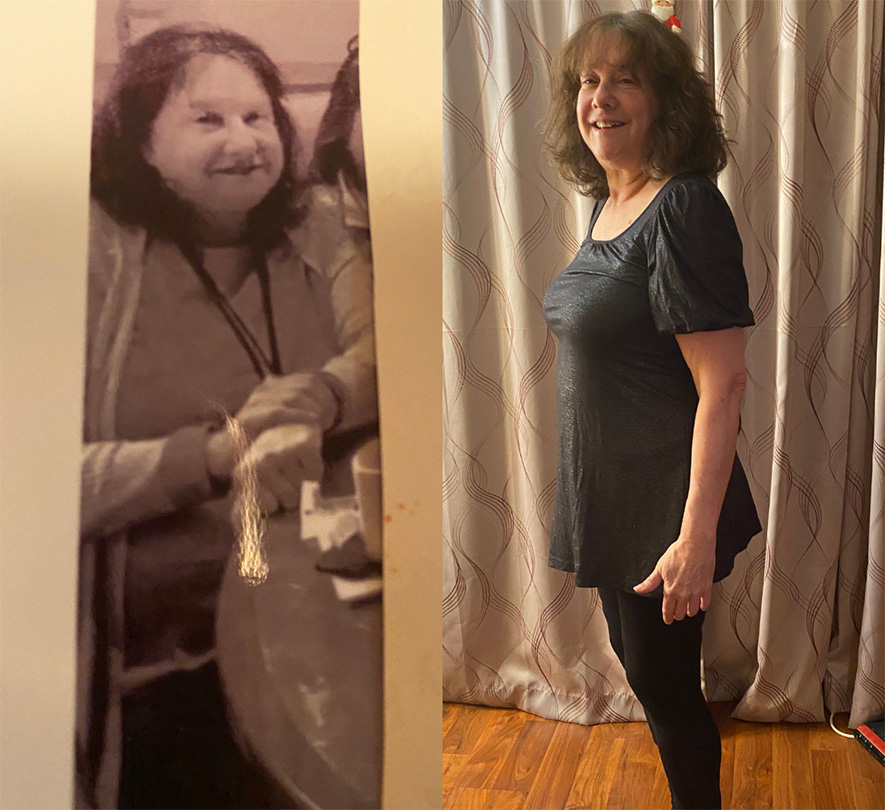
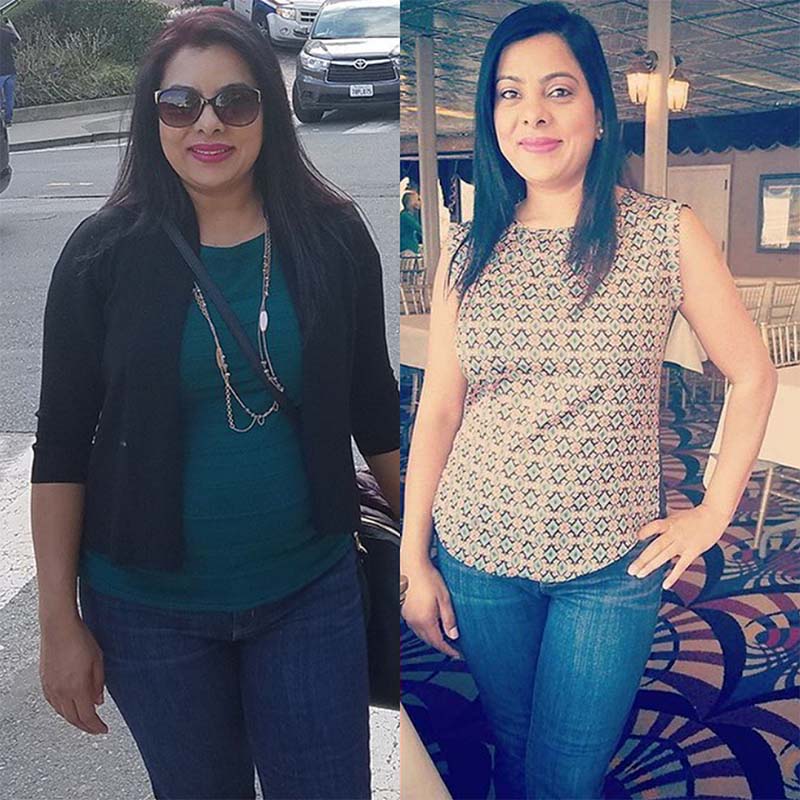

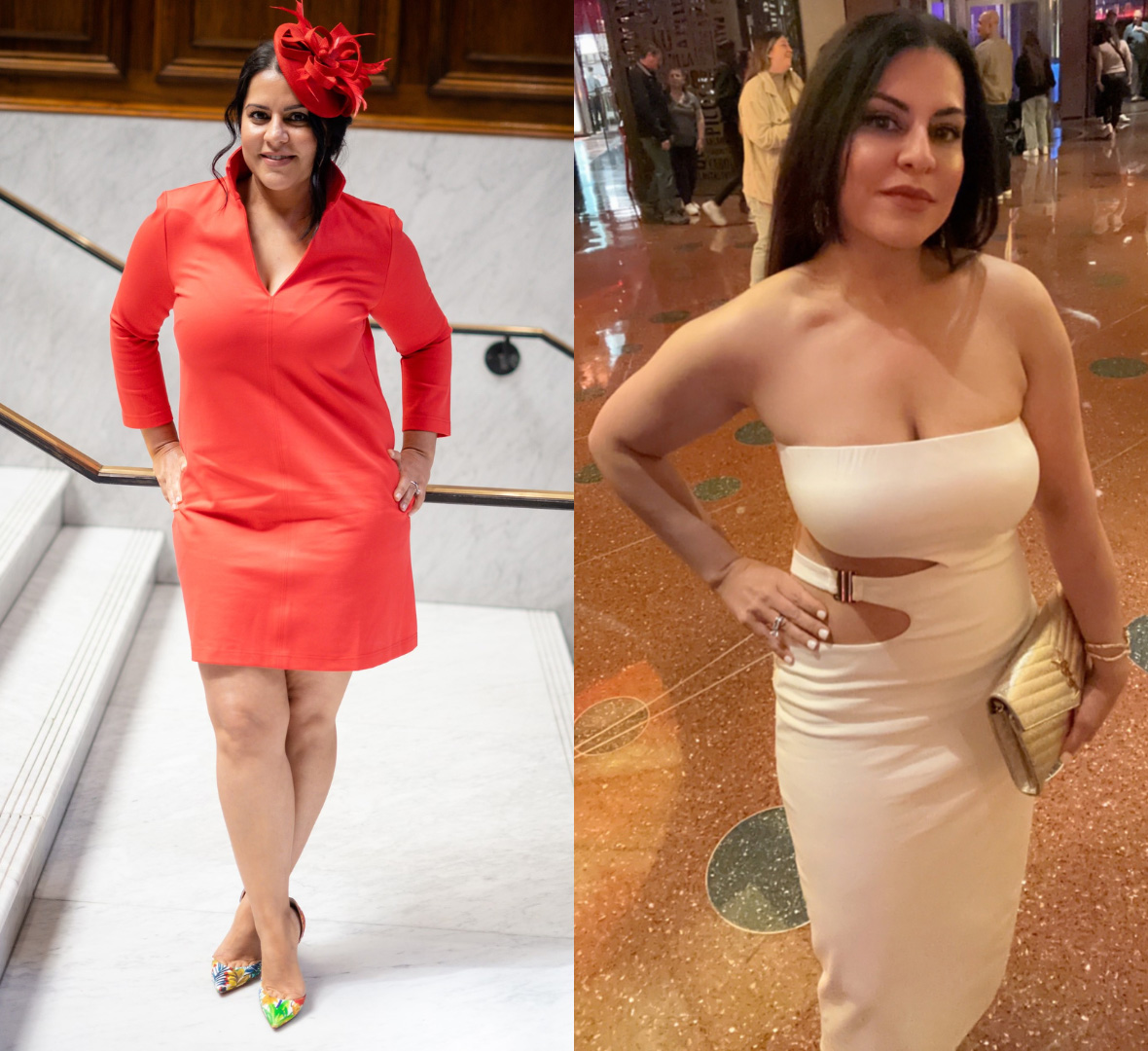

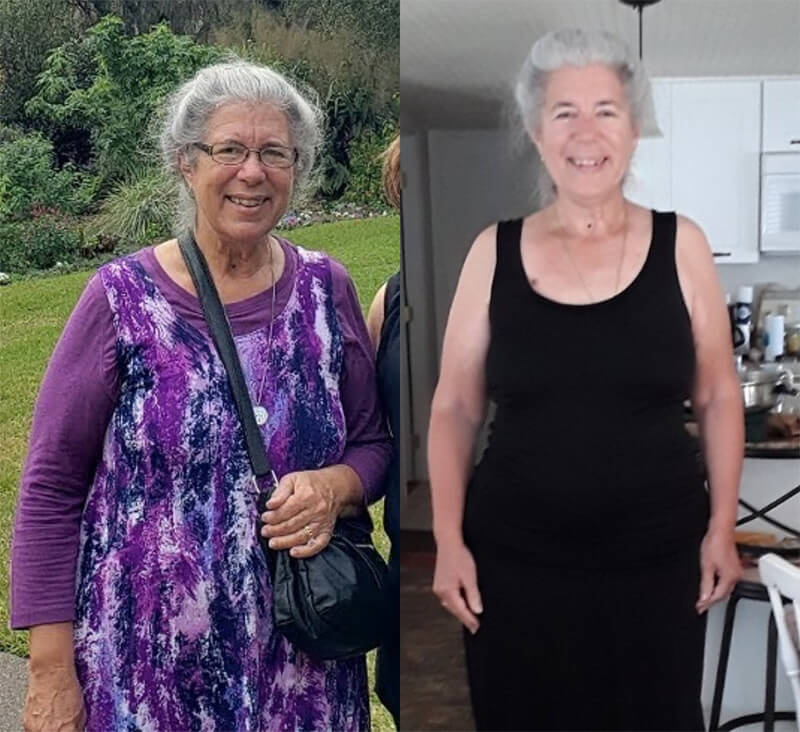
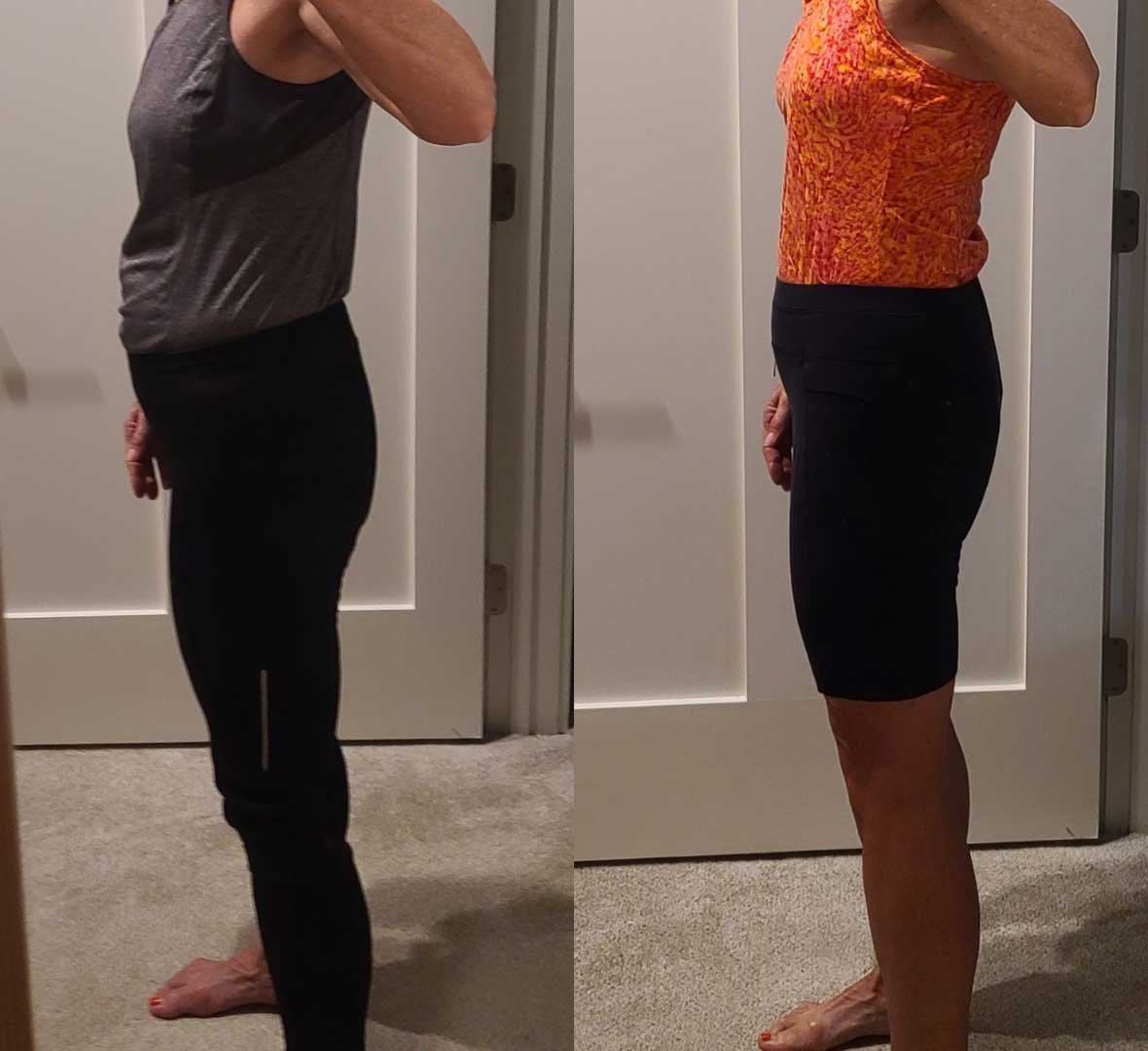

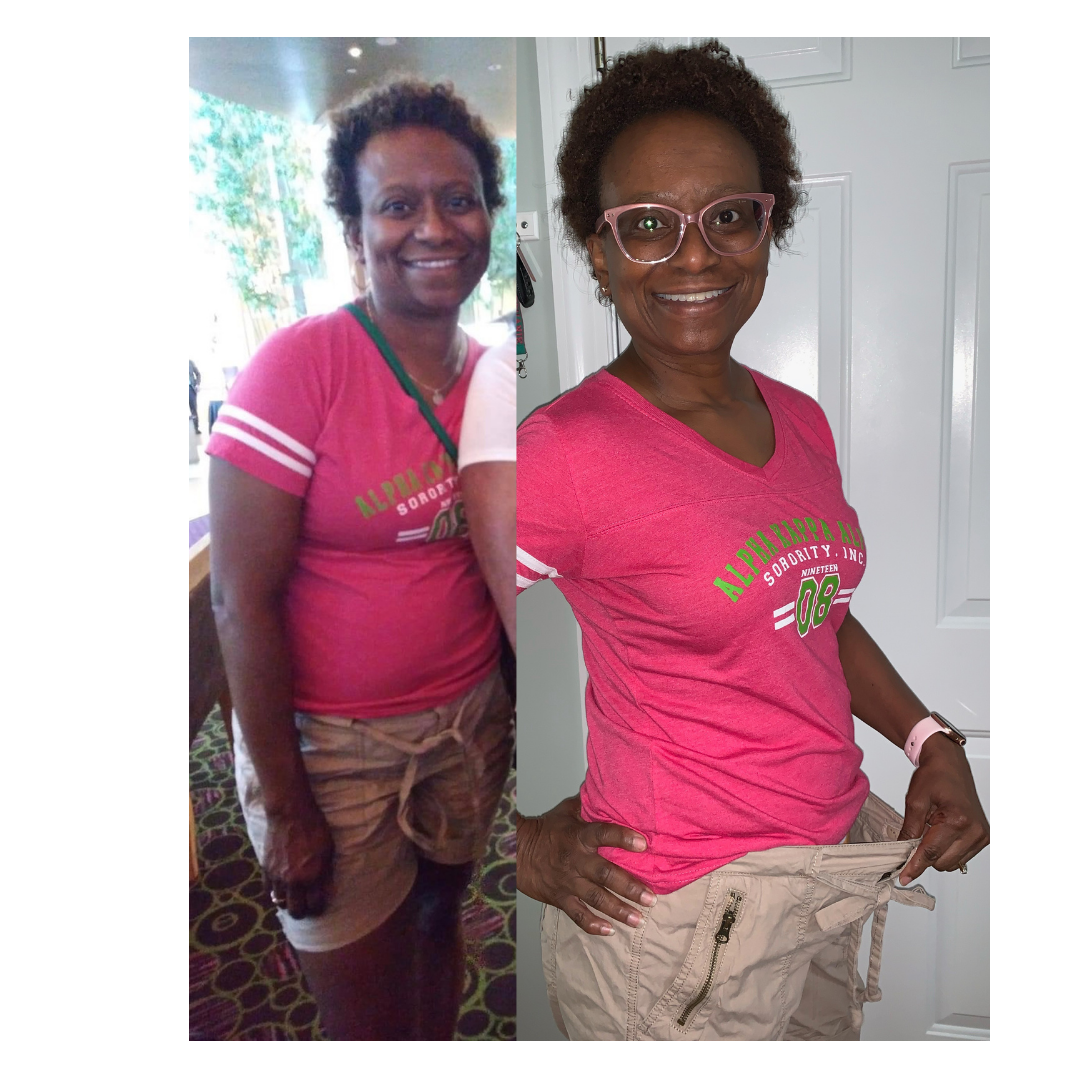
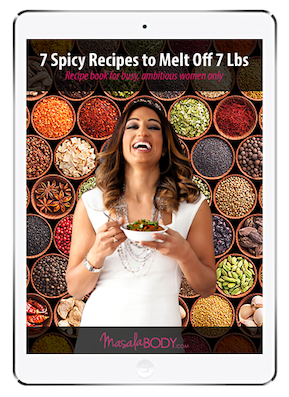

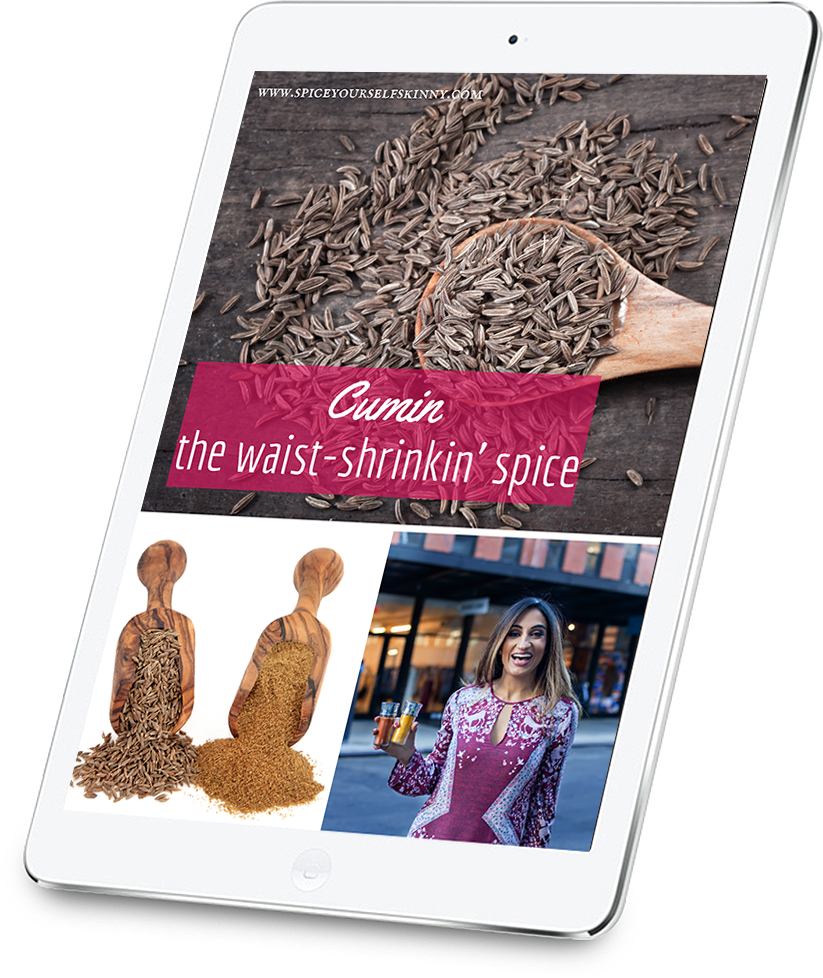
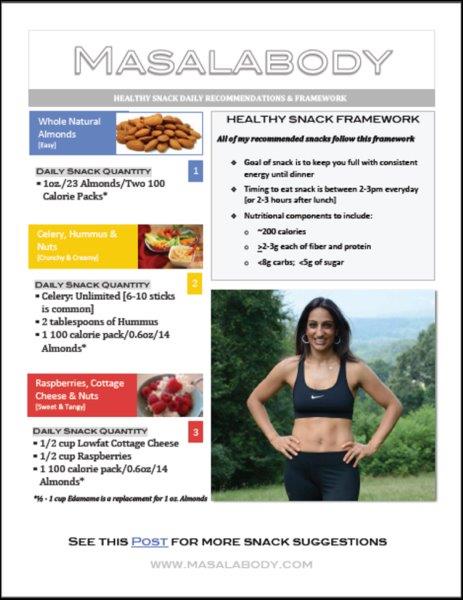
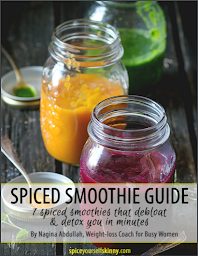
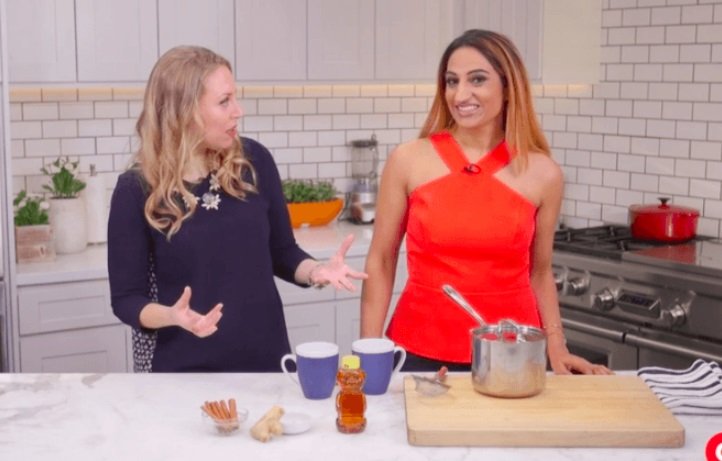

Reader Interactions